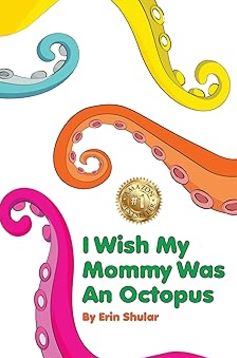Children experience a wide range of emotions every day, from joy and excitement to frustration and sadness. However, they may not always have the words to express what they’re feeling. This is where playful thinking comes in! Play allows children to explore their emotions in a safe and creative way, helping them process feelings, build emotional intelligence, and develop resilience.
Why Playful Thinking Matters for Emotional Development
Children don’t always have the words to express how they feel. Instead, they use play, humor, and imagination to make sense of their emotions. Playful thinking helps them cope with fear, frustration, excitement, and sadness by acting out scenarios and finding solutions through creativity.
Pretend play is their way of understanding the world and building confidence in handling life’s ups and downs.
Ways Playful Thinking Helps Kids Process Emotions
You can encourage playful thinking in simple ways, helping your child navigate their emotions while having fun. Here are some key ways play supports emotional growth.
1. Pretend Play Builds Emotional Awareness
When kids pretend to be doctors, teachers, or superheroes, they explore different emotions and perspectives. If they play as a caregiver, they practice empathy. If they act out a tough situation, they learn coping strategies.
2. Humor Reduces Stress and Anxiety
Laughter is a powerful tool for emotional release. Making silly jokes, playing goofy games, or using funny voices during storytelling can help children process stressful experiences. Humor shifts their focus from fear to fun, making emotions feel less overwhelming.
3. Art and Storytelling Provide Emotional Outlets
Drawing, painting, and storytelling allow children to express feelings they might not be able to say out loud. A child upset about a conflict with a friend might draw a picture of two animals making up after a fight. Encouraging creative expression helps them process and release emotions in a healthy way.
4. Movement Helps Manage Big Feelings
Physical play, like running, dancing, or jumping, can help children process strong emotions. If your child is frustrated, let them stomp like a dinosaur or race like a cheetah. Movement-based play helps kids release energy and reset their emotions.
5. Play Strengthens Parent-Child Bonds
Joining your child in play shows them that their emotions matter. Whether it’s pretending to go on an adventure or playing a silly game together, playful moments build trust for deeper emotional conversations.

Conclusion
Playful thinking is more than just fun, it’s a powerful way for kids to process their emotions, develop resilience, and learn how to express themselves. By encouraging pretend play, humor, art, and movement, you help your child build emotional intelligence in a natural and engaging way.
If you’re looking for a book that captures the magic of playful thinking, I Wish My Mommy Was An Octopus by Erin Shular is a perfect choice. This heartwarming book highlights how children use imagination to express emotions and strengthen their connection with loved ones.
Order now and learn about your child’s perspective through their playful thinking.




